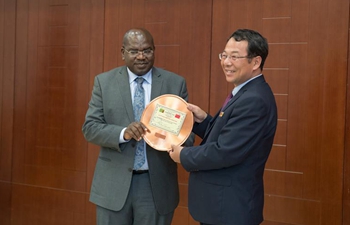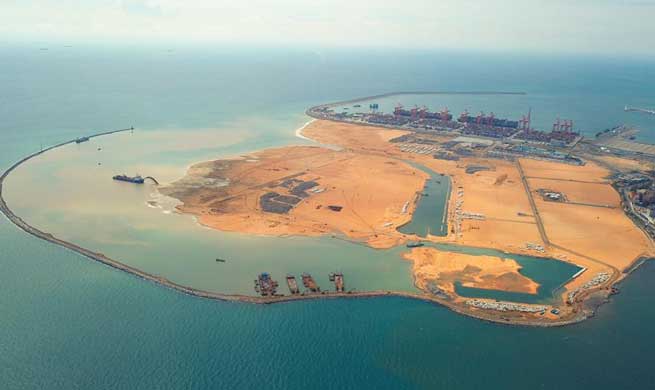by Victoria Arguello
BUENOS AIRES, May 14 (Xinhua) -- Argentina's economy is facing uncertainties following two weeks of currency devaluation to successive record lows against the U.S. dollar.
The country's growing trade deficit, rising foreign debt, stagnating growth and an increasing domestic demand for dollars spurred by a volatile peso make its economy vulnerable, Argentine economist Gonzalo Guilardes told Xinhua in a recent interview.
To stave off a potential crisis, the Argentine government applied for a credit line from the International Monetary Fund estimated to be between 20 billion and 30 billion U.S. dollars.
"Argentina is a country where the dollar is highly in demand as a savings option in times of uncertainty," he said.
"In 2017, the expanding current account (or trade) deficit, the demand for dollars and rising foreign debt were very significant and on a scale that was unsustainable," he added.
However, Guilardes said, what sparked peso's downward spiral was "the flight of financial dollars from foreign investors who were facing the changing conditions of the international financial market and lower profit expectations from local assets."
Investors sought to unload their pesos to invest in dollars, which forced the central bank in Argentina to raise its benchmark interest rate in a bid to stop the outflow of dollars.
In addition, an income tax on short-term debt bonds issued by Argentina's central bank took effect on April 25, worsening the dollar flight, analysts say.
According to Guilardes, Argentina was facing difficulties in its economy before President Mauricio Macri took office in 2015 when South America entered a period of economic stagnation with a rise in the current account deficit due to a fall in the commodity prices.
The Argentine government "minimized" the impact of the slowdown but failed to tackle the real problems and challenges facing Argentina's economy, including weak growth, a growing trade deficit, and a high demand for dollars, Guilardes said.
"The government has presented the trade deficit as the main problem of the Argentine economy ... and during the past two years, Macri's government has expanded it," said Guilardes.
At the same time, the foreign debt has ballooned, he said. Argentina issued some 130 billion U.S. dollars of bonds for the 2016-2018 period, according to economists.
"If the government does not reestablish credibility and outline a credible horizon for the currency exchange rate, there is a high risk that retail holders will switch their assets from pesos to dollars," which may further erode the peso, Guilardes said, adding that for now higher inflation looms.
"The magnitude of the spiraling devaluation, rising uncertainty and dollar demand is an unknown," he said.
















